Discover How Rabbits Show Affection? in this insightful guide. From gentle nudges to cosy cuddles, explore their unique love language.
Often cherished as pets, rabbits exhibit a unique way of showing affection. They may not express love in the same way as dogs and cats, but their gestures are equally endearing once you are able to recognize them. In this blog post, we will examine the various ways rabbits demonstrate their affection, allowing you to build a stronger bond with your furry friend.
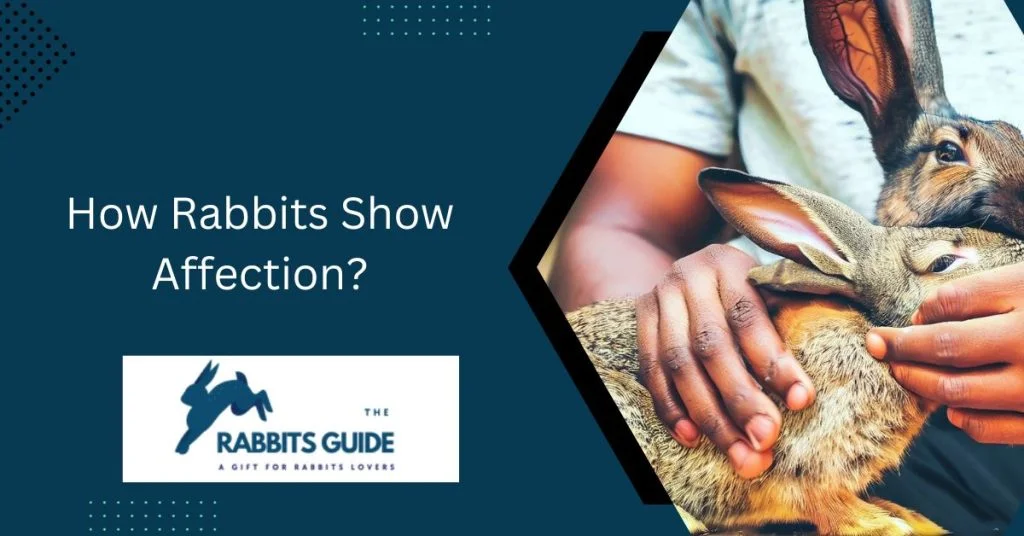
How Rabbits Show Affection?
A rabbit is a social animal that forms strong bonds with its human caregivers and its fellow rabbits. Their ways of expressing affection are subtle but distinct.
Here are some common ways rabbits express their affection
Grooming
The rabbit is a fastidious groomer, and they will often groom one another as a sign of affection. If your rabbit begins to groom you, it is a clear indication that you are trusted and cared for.
Nuzzling and Nudging
Rabbits will often nuzzle or nudge their favourite humans or other rabbits. This is a sign of closeness and trust.
Licking
Licking is considered a sign of affection. If a rabbit licks you, it indicates that it feels comfortable and has bonded with you.
Lying Next to You
Rabbits lying next to you show that they feel safe and secure in your presence. This is an indication of their trust and affection for you.
Purring or Grunting
The rabbit can make soft purring or grunting sounds when it is content, especially when it is being petted or cuddled.
Leaning Against You
It is not uncommon for rabbits to lean against you when you are sitting together. This is a means of expressing trust and seeking closeness.
Flopping
When a rabbit flops onto its side or back, it indicates that it feels safe and comfortable in its surroundings. If the rabbit does this when it is near you, it means trust.
Following You Around
Rabbits that follow you around the house are likely seeking interaction with you and enjoy your company.
Lifting Their Head for Petting
A rabbit’s head lifting or forehead pushing against your hand is an indication that they enjoy being petted and that they trust you.
Bringing You Gifts
Some rabbits may bring you toys or items as a means of showing affection. This behaviour is more common in rabbits that have a strong bond with their owners.
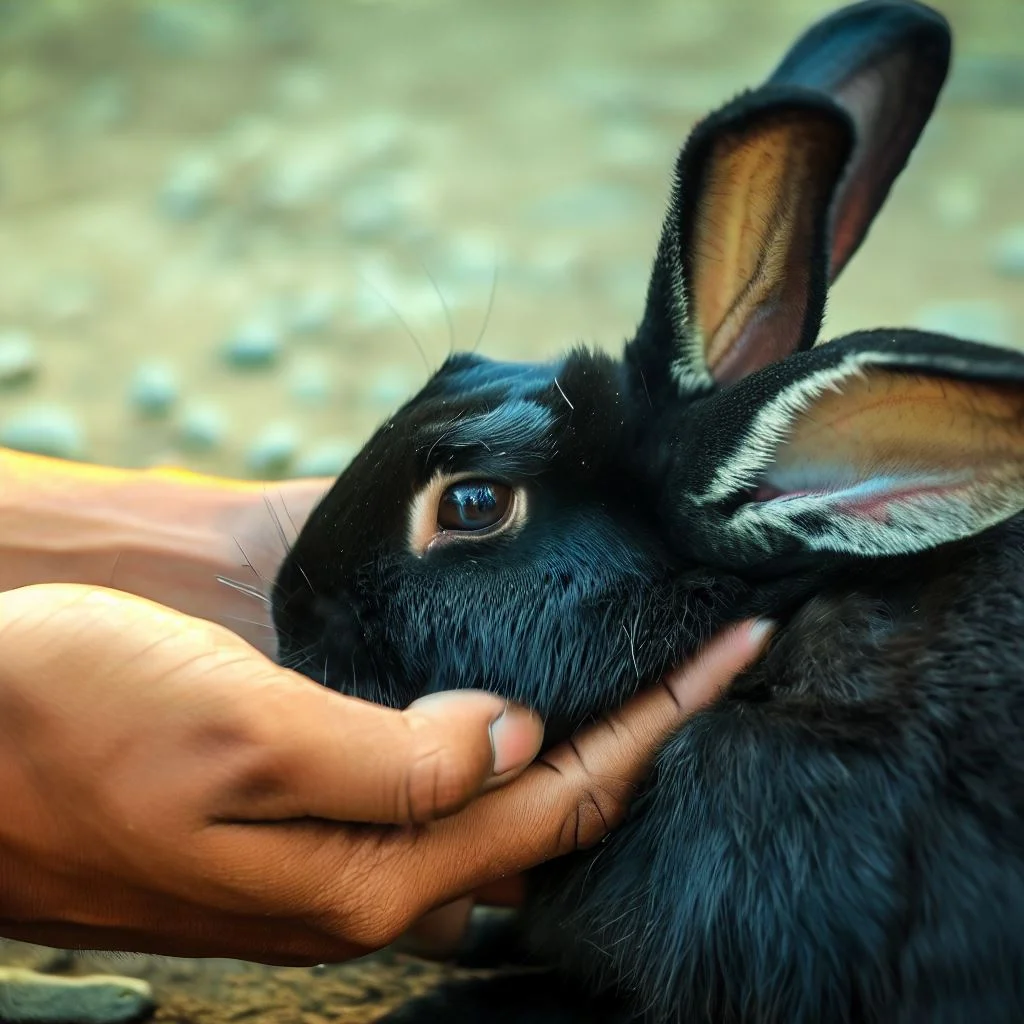
The Importance of Binkies in Rabbit Affection
The binky shows the rabbits’ happiness and affection. It is a form of dance performed by a rabbit when they jump up in the air and twist their bodies around. It looks like a little hoppy dance! When a rabbit does a binky, it indicates they are feeling very happy and content. They might perform it when they are enjoying themselves, exploring, or simply feeling good. It is a special dance meant to express happiness!
When rabbits are binky, it is also a way to say “I like you!” to their rabbit friends and their human companions. When they bink around you, they might indicate their feelings of safety and happiness. So, if you see your rabbit doing a binky, you know it’s a special way of giving you a big bunny hug! It is a wonderful sign of affection and trust between you and your fluffy friend.
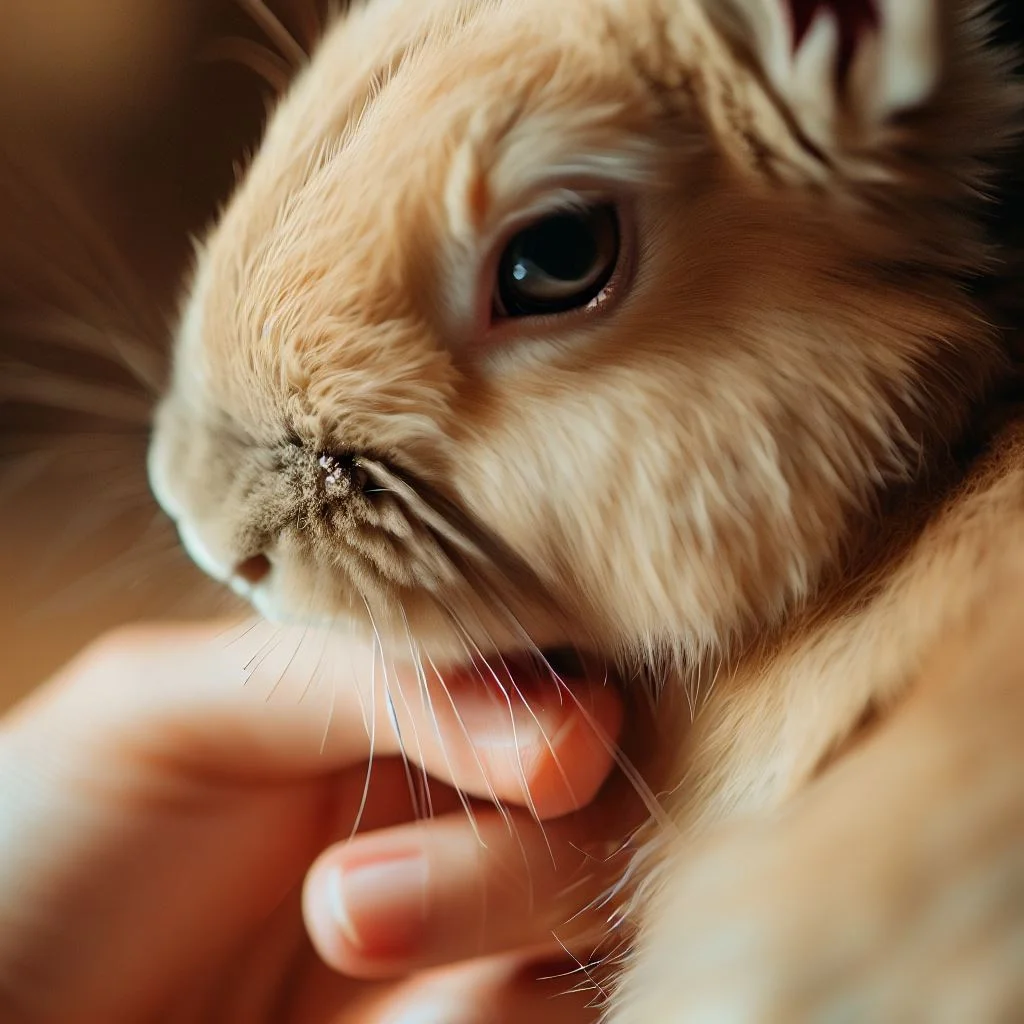
10 Signs Your Rabbit Loves You
A rabbit can be a very affectionate and wonderful pet. Rabbits may not express love in the same way as dogs or cats, but they exhibit their special signs to let you know they care for you.
Here are 10 signs to look out for.
Nuzzling and Nuzzling Your Hand
Whenever a rabbit nuzzles you or your hand, it means they trust you and cherish you. They’re telling you, “You are special to me!”
Licking You
Rabbits may lick you gently, just as cats do. This shows that they consider you a part of their family.
Flopping Down Next to You
The rabbit flops into their side near you when they feel safe and comfortable in your presence. This is a big sign of affection.
Purring or Quiet Tooth Grinding
When a rabbit purrs or grinds its teeth quietly, it is a sign of contentment and affection.
Following You Around
When your rabbit follows you from room to room, they are expressing their attachment to you. They enjoy your company and want to remain close to you.
Jumping and Binkying Around You
It is the act of a rabbit jumping, twisting, and running around in excitement when it is around you. This indicates the rabbit is happy to be around you.
Allowing You to Pet Them
The fact that a rabbit lets you stroke it and does not run away indicates that it trusts you and enjoys your touch. This is a clear indicator of their affection for you.
Leaning Against You
Leaning against you or resting against your legs is a sign that your rabbit finds comfort and safety in your presence.
Bringing You Gifts
It is unlikely that rabbits will bring you flowers, but they are likely to share with you their favourite toys or even a snack as a way of showing you that they care for you.
Blinking Slowly at You
Whenever a rabbit blinks slowly at you, it is a sign of trust. They are saying, “I feel safe with you”, in their unique way.
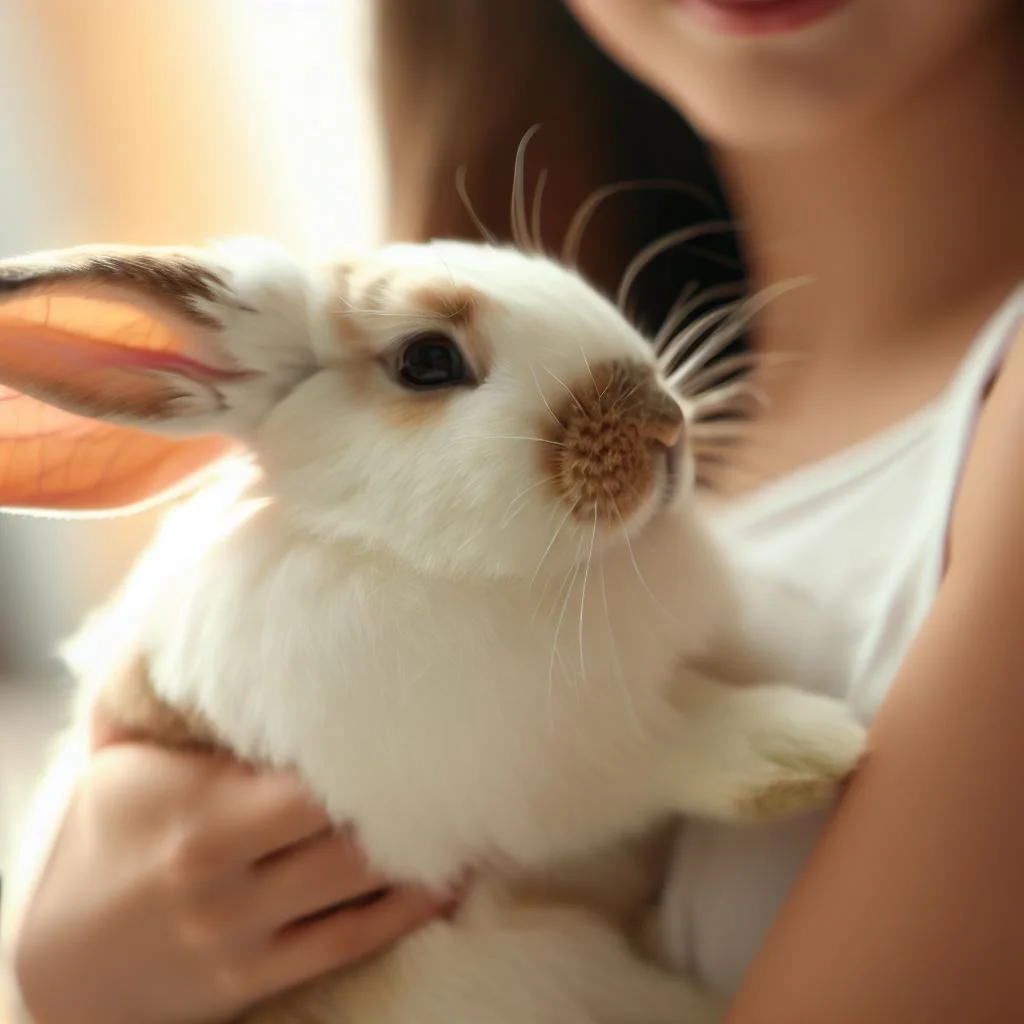
Signs Of A Depressed Rabbit
If you suspect that your rabbit is depressed, you should consult with a veterinarian who specializes in small animals for proper diagnosis and treatment.
Here are some potential signs of a depressed rabbit
Loss of Appetite
There is a possibility that a rabbit suffering from depression will lose interest in eating, resulting in a decrease in food consumption.
Lethargy
The animal may become unusually inactive, spending more time lying down and showing less interest in its surroundings.
Social Withdrawal
Rabbits that are normally social may become withdrawn and avoid interacting with humans or other animals.
Hiding
It is common for rabbits who are depressed to seek out hiding spots and spend extended periods there, thereby isolating themselves from their usual environment.
Changes in Grooming
Rabbits who are depressed may groom themselves excessively or neglect to groom at all.
Decreased Interest in Play
They may show little interest in toys or activities that would normally engage them.
Unusual Posture
A hunched or slouched posture may indicate discomfort or unhappiness.
Vocalizations
Depressed rabbits may make distressed sounds, such as soft whining or whimpering.
Changes in Elimination
It is important to note that any significant change in urination or defecation habits can indicate distress.
Weight Loss
Weight loss may occur if a rabbit’s appetite is impaired for an extended time.
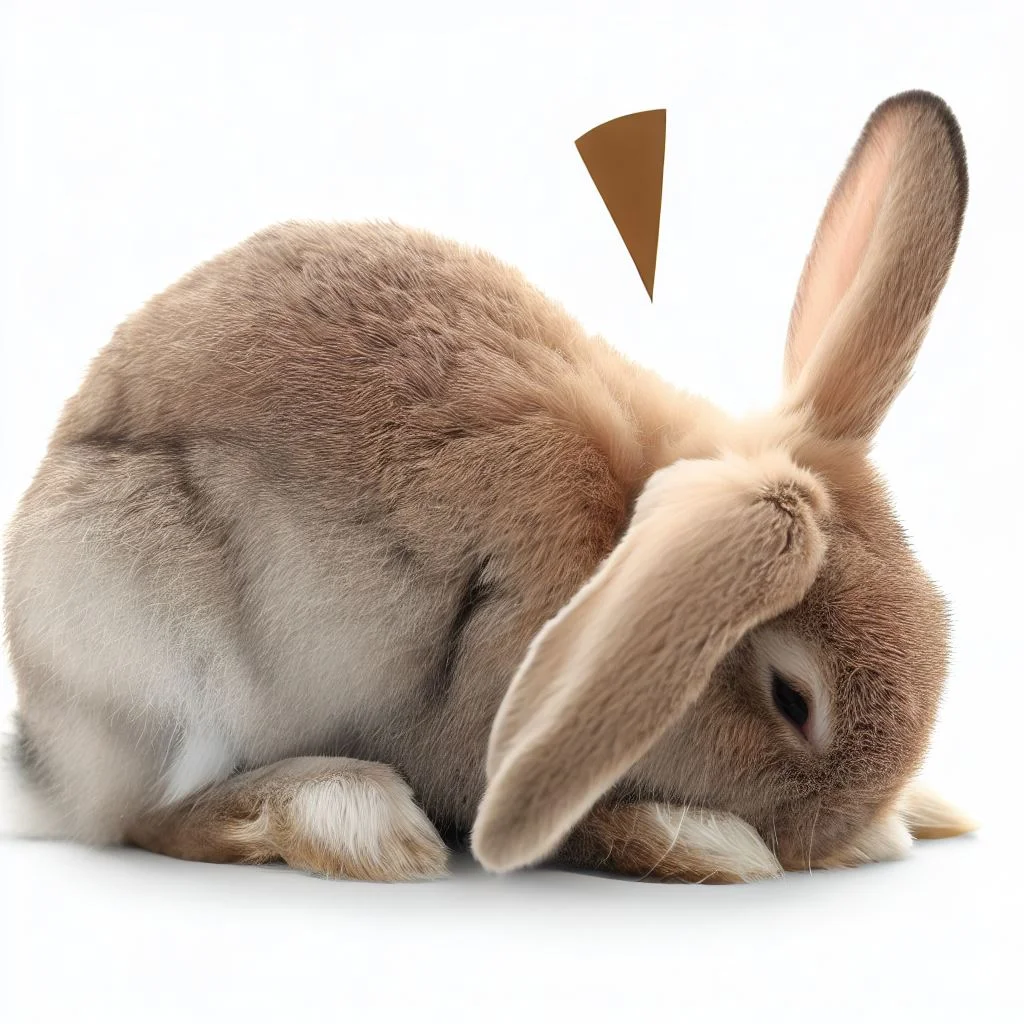
How Tail Language Influences Rabbit Affection
In order for rabbits to understand and express affection, tail language is extremely important. Rabbits are known for their intricate non-verbal communication, and their tails are an important indicator of their feelings. It is common for rabbits to hold their tails in a neutral, relaxed position when they are feeling comfortable, secure, and affectionate.
This signifies a state of comfort and trust, which makes it easier for other rabbits to approach and interact in a friendly manner. If a rabbit is feeling stressed, frightened, or agitated, its tail might be tucked between its hind legs or even tightly held against its body. It is possible to foster affection and positive social interactions among rabbits by recognizing these subtle cues in tail language.
Moreover, tail language also aids in establishing hierarchies and social bonds within a group of rabbits. In situations where rabbits are forming bonds of affection, a gently raised tail can be a sign of acceptance and camaraderie. In order to strengthen trust and love among rabbits, rabbits offer their raised tails to one another to invite them to groom each other.
Further, rabbit tail language can provide valuable insight into potential conflicts or discomfort within a group by revealing potential conflicts or hurts within the group. A lowered or twitching tail may indicate a rabbit’s unease, signalling the need for a more careful and empathic approach to ensure a harmonious environment. In order to foster healthy and affectionate relationships among rabbits, it is important to understand the significance of tail language.
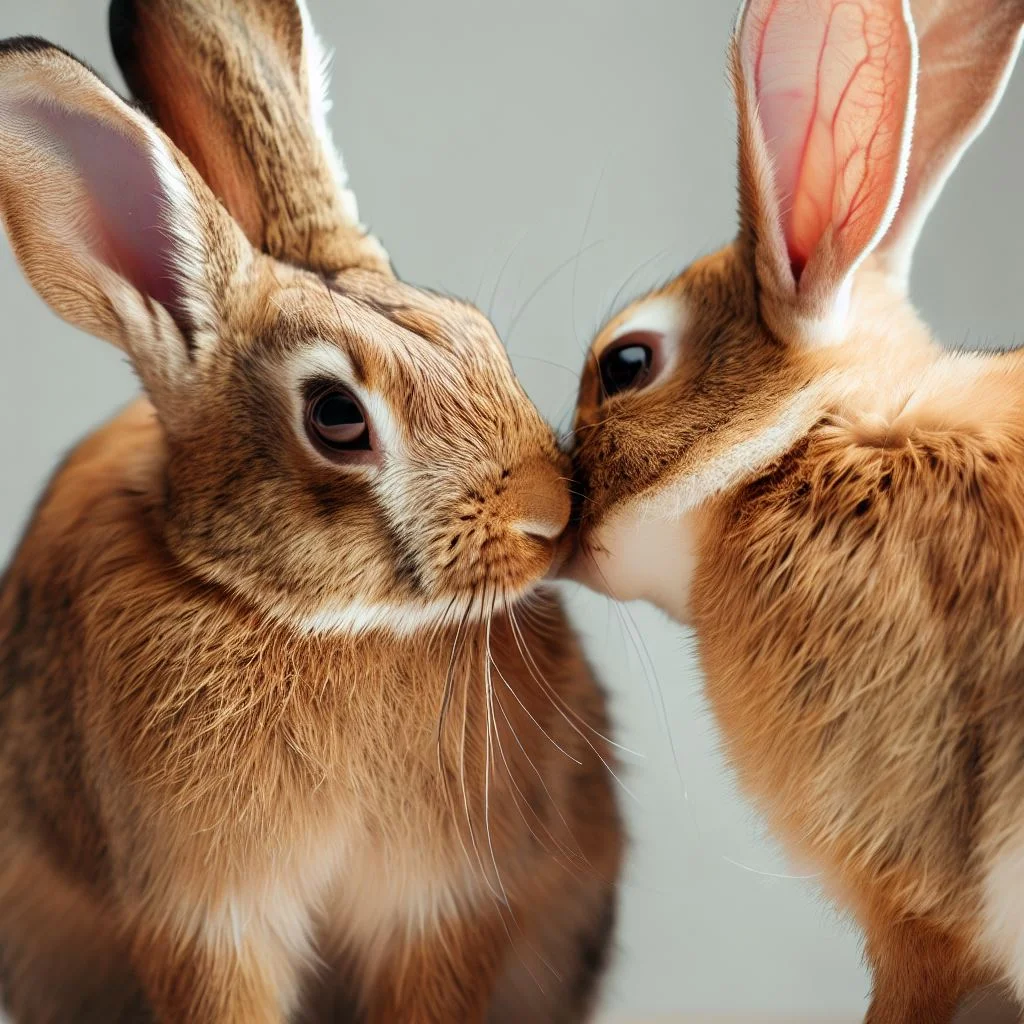
How do rabbits show affection to each other?
It is common for rabbits to display affection by grooming and nuzzling each other, as well as flopping onto their sides, indicating comfort and trust.
What do rabbits love to eat?
Rabbits enjoy hay, which should constitute the majority of their diet. They also want fresh vegetables like leafy greens and carrots. In moderation, pellets and treats such as fruit may be given, but their primary diet should consist of hay and greens.
What does it mean when a rabbit cleans itself in front of you?
When a rabbit cleans itself in your presence, it can be a sign of trust and comfort. Rabbits are naturally clean animals, and grooming is a means of relaxation for them. It indicates that they consider you to be a member of their social group if they feel secure enough to groom themselves around you.
Do rabbits understand kisses?
Unlike humans, rabbits do not comprehend kisses in the same way, but they can be taught to associate gentle, nonthreatening interactions with positive experiences. In some cases, rabbits may tolerate or even enjoy soft kisses between their ears or on top of their heads, but it is essential to be gentle and observe their body language to ensure that they are at ease during the kiss.
Where do rabbits like to be pets?
Rabbits enjoy being petted on the forehead, between their ears, and on their back, as well as on their cheeks and under their chin. Some rabbits may also appreciate gentle strokes on their cheeks and under their chin. You should pay attention to their reactions; if they nuzzle or purr (a soft grinding of their teeth), that usually means they are enjoying the petting. Unless you are confident that the rabbit is comfortable with touching its sensitive ears or feet, could you not feel them?
Conclusion
For the purpose of strengthening a strong and positive human-animal bond, rabbit owners must understand how rabbits show affection. A rabbit’s affection is expressed through subtle body language, vocalizations, and specific behaviours such as grooming and cuddling. Rabbit owners should be attentive and observant in order to reciprocate this affection and create a nurturing environment for their pets. The best way to ensure that rabbits thrive and flourish as cherished companions is to respect their individual preferences and provide them with a safe and enriching living environment. In the end, recognizing and appreciating rabbit affection is the key to achieving a harmonious and fulfilling relationship between humans and their beloved lagomorphs.
